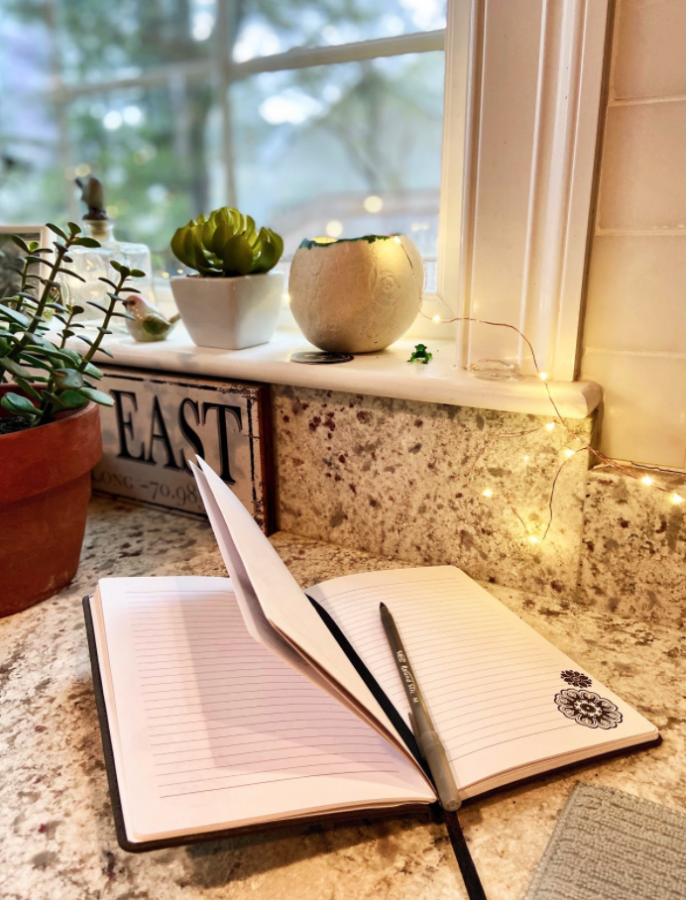The benefits of journaling
Make the most of your alone time by practicing journaling
We shouldn’t pretend that this pandemic has been easy on any of us. Many people aren’t spending their senior year the way they hoped they would, graduation has been canceled, sports teams had their season cut short, proms have been canceled, work has been shut down and many people are worried about their income and health.
A lot of us are spending a lot more time alone with ourselves than we thought we would be, and that at times can be hard. This is why it’s a good time to write about what you’re feeling.
Journaling isn’t just for teenagers and it can be a great tool for positive mental health. In times like these, It’s even more important to have a good relationship with your mind.
Positivepsychology.com has put together a list of 83 benefits you get from journaling every day, including that it can boost your immune system. Some of the psychological benefits of journaling every day that they listed are that it helps to promote creativity, leave your stressors behind for a bit, identify problems that you might have normally never seen, boost your gratitude, and it leaves a record of your experiences which can be precious in the future.
In an academic sense, journaling every day can really improve your writing and reading skills. Though we’re still in school, and most of us are writing and reading every day anyway, this kind of writing, in general, is helpful for your overall well-being. Plus, it can help keep your mind organized and you can set goals for yourself.
For some people, journaling can also be a spiritual practice as well, one in which the mind becomes self-aware in this state of meditation.
There are ways in which you can make journaling even more productive, to make sure you’re getting the most out of it. PositivePsychology.com lists different tips to ensure this, such as writing in a private space of your choosing about what feels best in the moment and to organize your writing in a way that feels best to you, keeping it private.
As a person who writes a decent amount already, I never feel as though journaling is tiresome. If anything, I find myself able to understand my own mind better. There are a few aspects I struggle with though, like having to let my spelling and grammar go, and not check my phone to see if I spelled something right or wrong. I have to remind myself that this isn’t about being a good writer (which is hard as a journalism major). It’s about having a relationship with your mind. After journaling, I often feel refreshed and able to move on with my day and in many ways I find it energizing for my mind.
So, if quarantine is making you feel a bit down, or you’re just looking to know yourself a little better, journaling is sure to be a helpful and rewarding act.
Email Elisabeth Morgan at [email protected] and follow her on Twitter @lizziewmorgan.











